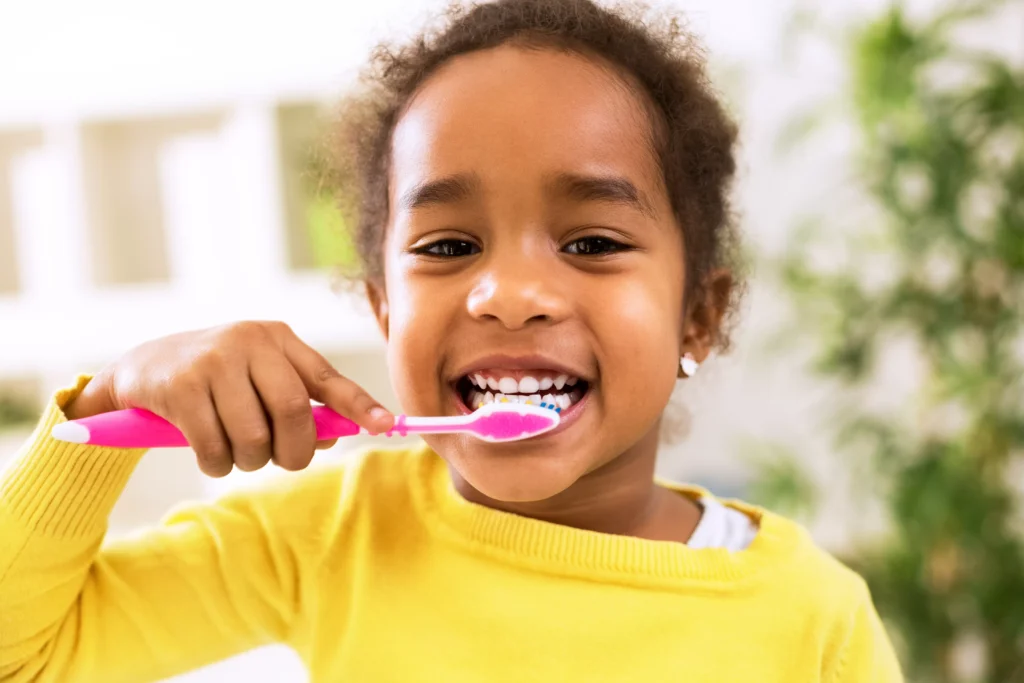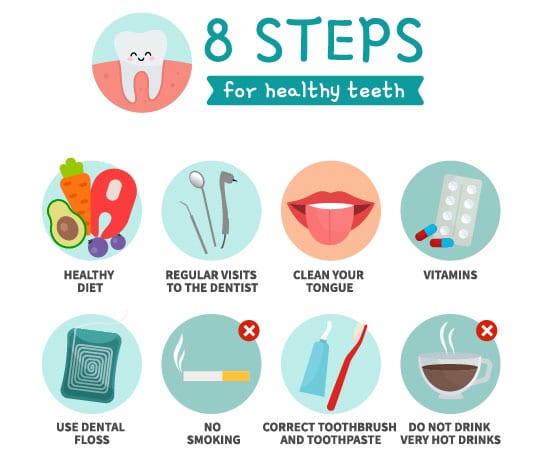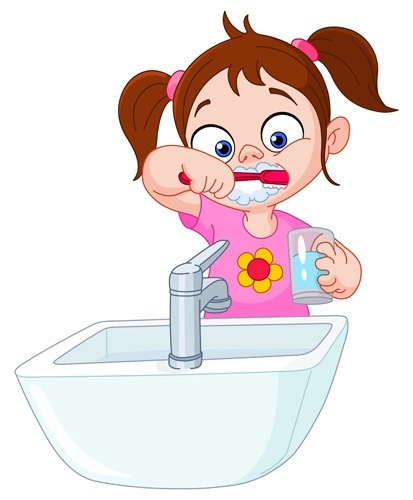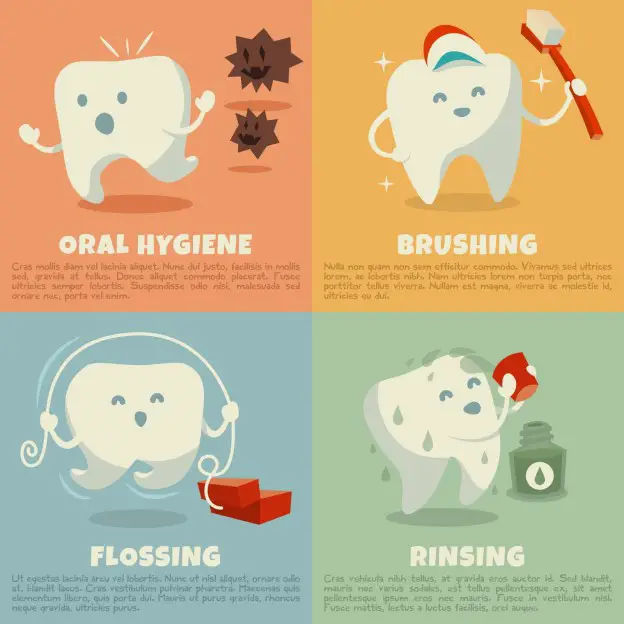Do you ever wonder what it takes to maintain a healthy smile? Well, you’re in luck because today we’re going to dive into the topic of taking care of your teeth. By the end of this article, you’ll have a better understanding of the importance of dental hygiene and some tips on how to keep your pearly whites in top shape.
Taking care of your teeth is crucial for both your oral health and overall wellbeing. Neglecting your dental hygiene can lead to a variety of issues, such as cavities, gum disease, and even tooth loss. But don’t worry, it’s not as daunting as it may seem. With a few simple habits and regular visits to the dentist, you can ensure that your smile remains healthy and beautiful.
Now that we’ve caught your attention with the importance of dental care, let’s delve deeper into the details. In the next paragraphs, we’ll explore the best practices for brushing and flossing, the role of a balanced diet in maintaining oral health, and the significance of regular dental check-ups. So, stay tuned and get ready to learn how to take care of your teeth like a pro!
Importance of Dental Care
The role of dental care in overall health
Dental care is not just about having a nice smile; it plays a crucial role in maintaining overall health. Poor oral health has been linked to various medical conditions, including heart disease, diabetes, respiratory infections, and even pregnancy complications. Regular dental care can help prevent these health issues and promote overall well-being.
Preventing oral diseases through dental care
One of the main benefits of dental care is its ability to prevent oral diseases. Neglecting oral hygiene practices can lead to the development of various oral health problems, such as gum disease, tooth decay, and bad breath. Regular brushing and flossing, along with professional dental cleanings, can significantly reduce the risk of these diseases and maintain a healthy mouth.
How dental care affects the appearance of teeth
Apart from health benefits, dental care also plays a significant role in enhancing the appearance of teeth. Good oral hygiene practices, such as brushing, flossing, and regular dental check-ups, can help maintain the natural color of teeth, prevent stains and discoloration, and ensure a bright and attractive smile. It also contributes to fresh breath, which is essential for social interactions and self-confidence.
Daily Dental Hygiene Practices
Brushing teeth twice a day
One of the most important daily dental hygiene practices is brushing your teeth twice a day. Dentists recommend using a soft-bristled toothbrush and fluoride toothpaste for effective cleaning. Brushing should be done for at least two minutes to ensure that all surfaces of the teeth are thoroughly cleaned.
Using fluoride toothpaste for effective cleaning
Fluoride is a mineral that helps prevent tooth decay and strengthen enamel. Using toothpaste that contains fluoride is essential for effective cleaning and prevention of cavities. It is advisable to choose a toothpaste with the American Dental Association (ADA) seal of approval to ensure its safety and effectiveness.
Correct brushing techniques for optimal results
Brushing technique plays a crucial role in achieving optimal oral hygiene results. It is recommended to hold the toothbrush at a 45-degree angle against the gum line and use gentle, circular motions to clean the outer and inner surfaces of the teeth. Brushing the tongue can also help remove bacteria and freshen breath. Remember to replace your toothbrush every three to four months or when the bristles become frayed.

Proper Flossing Techniques
The significance of flossing in dental hygiene
Flossing is an essential part of dental hygiene that should not be overlooked. While brushing can clean the outer surfaces of teeth, flossing helps remove plaque and food particles from between the teeth and along the gum line. This helps prevent gum disease and cavities in hard-to-reach areas.
Choosing the right type of dental floss
There are various types of dental floss available, including waxed, unwaxed, flavored, and tape floss. The most important factor when choosing dental floss is finding one that is comfortable and easy to use. Whether you prefer traditional floss or floss picks, the goal is to effectively remove plaque and debris from between the teeth.
Step-by-step guide to flossing correctly
To floss correctly, start by taking about 18 inches of floss and wrap it around your middle fingers, leaving a few inches of floss to work with. Gently slide the floss between each tooth, making a “C” shape around the tooth and moving it up and down. Ensure you reach the gum line and use a clean section of floss for each tooth. Flossing should be done at least once a day, preferably before brushing your teeth.
Importance of Regular Dental Check-ups
Understanding the benefits of regular dental visits
Regular dental check-ups are vital for maintaining oral health. During these visits, dentists can identify and address any early signs of dental problems, such as tooth decay, gum disease, or oral cancer. They also provide professional cleanings to remove plaque buildup that cannot be removed by brushing and flossing alone.
How often should you visit the dentist?
It is generally recommended to visit the dentist every six months for regular check-ups and cleanings. However, the frequency may vary depending on individual oral health needs. Some individuals with specific dental conditions or higher risks of oral diseases may require more frequent visits, while others with excellent oral health may only need to go once a year.
What to expect during a dental check-up
During a dental check-up, the dentist will examine your teeth, gums, and mouth for any signs of problems. They may perform X-rays, take measurements of gum pockets, and check for cavities or signs of decay. The dentist may also clean your teeth by removing plaque and tartar buildup and provide recommendations for maintaining optimal oral health.

Preventive Dentistry Methods
Professional teeth cleanings to prevent plaque buildup
Professional teeth cleanings are an essential part of preventive dentistry. Even with regular brushing and flossing, plaque can still accumulate on the teeth over time. Dental hygienists use specialized tools to remove this buildup, polish the teeth, and leave them clean and smooth. These cleanings help prevent tooth decay, gum disease, and other oral health problems.
The role of dental sealants in cavity prevention
Dental sealants are thin plastic coatings applied to the chewing surfaces of the back teeth, where decay is most likely to occur. They create a protective barrier that prevents food particles and bacteria from getting trapped in the deep grooves and pits of the teeth. Dental sealants are especially beneficial for children, as they can help prevent cavities during their early years.
Fluoride treatments for stronger and healthier teeth
Fluoride treatments are another preventive dentistry method that strengthens teeth and protects them against tooth decay. Fluoride is applied to the teeth in the form of a gel, foam, or varnish, and it helps remineralize weakened enamel and prevent the growth of harmful bacteria. These treatments are particularly beneficial for individuals at high risk of cavities, such as those with dry mouth or a history of tooth decay.
Maintaining a Healthy Diet for Dental Health
The effects of sugary and acidic foods on teeth
Your diet plays a significant role in your dental health. Consuming excessive amounts of sugary and acidic foods and beverages can increase the risk of tooth decay and erosion. These substances promote the growth of harmful bacteria in the mouth, leading to cavities and enamel damage. It is important to limit the intake of sugary snacks, sodas, and acidic foods to protect your teeth.
Foods that contribute to maintaining good oral health
Certain foods can actually contribute to maintaining good oral health. Crunchy fruits and vegetables, such as apples and carrots, stimulate saliva production and help clean the teeth naturally. Dairy products, like cheese and yogurt, are rich in calcium and phosphates, which strengthen tooth enamel. Additionally, foods high in vitamin C, such as citrus fruits and leafy greens, promote healthy gums.
The importance of drinking enough water for dental care
Drinking enough water is crucial for dental care. Water helps wash away food particles and neutralize acid in the mouth, reducing the risk of cavities and gum disease. It also promotes saliva production, which is essential for maintaining a moist environment and protecting teeth and gums. Make sure to stay hydrated throughout the day to support optimal dental health.

Avoiding Harmful Habits
How smoking affects dental health
Smoking is not only harmful to overall health but also has detrimental effects on dental health. Smoking stains the teeth, causes bad breath, and increases the risk of gum disease and oral cancer. It also impairs blood flow to the gums, making it harder for them to heal from infections. Quitting smoking is crucial for improving dental health and reducing the risk of oral complications.
The impact of excessive alcohol consumption on teeth
Excessive alcohol consumption can also have a negative impact on dental health. Alcohol dries out the mouth, reducing saliva production and promoting the growth of harmful bacteria. It can also stain the teeth and cause bad breath. It is important to drink alcohol in moderation and maintain good oral hygiene practices to minimize its negative effects on dental health.
Breaking harmful habits for improved dental care
Breaking harmful habits, such as nail-biting, teeth grinding, and chewing on ice or pens, is essential for improved dental care. These habits can cause tooth fractures, enamel erosion, and damage to the jaw joint. It is important to be aware of these habits and find healthier ways to cope with stress and anxiety. Seeking professional help, such as a dentist or therapist, can also be beneficial in breaking these habits.
Protecting Teeth while Engaging in Sports
Using mouthguards for dental protection
Engaging in sports can put teeth at risk of injury. Using mouthguards is an essential step in protecting the teeth during sports activities. Mouthguards act as a cushion, absorbing the impact of any blows or falls and reducing the risk of tooth fractures, dislocation, or loss. They are especially important for contact sports, such as football, boxing, and hockey.
The importance of wearing proper gear
In addition to mouthguards, wearing proper gear is crucial for protecting the teeth during sports. Helmets, face masks, and protective eyewear can provide additional protection against facial and dental injuries. It is important to ensure that the gear fits properly and is in good condition to provide maximum protection.
Preventing dental injuries in sports activities
Apart from using protective gear, there are other preventive measures to avoid dental injuries during sports activities. These include practicing good sportsmanship, following the rules and guidelines of the sport, and avoiding unnecessary risks. Being aware of potential dangers and taking precautions can significantly reduce the risk of dental injuries.

Dealing with Dental Emergencies
Steps to take during a toothache
A toothache can be a sign of various dental problems, such as tooth decay, gum disease, or an abscessed tooth. If you experience a toothache, it is important to take immediate action. Start by rinsing your mouth with warm saltwater to reduce inflammation. If the pain persists, take over-the-counter pain medication and make an appointment with your dentist as soon as possible.
First aid for a knocked-out tooth
A knocked-out tooth is a dental emergency that requires prompt action to increase the chances of saving the tooth. The first step is to locate the tooth and gently rinse it with water, being careful not to touch the root. If possible, try to place the tooth back in its socket and bite down on a clean cloth or gauze to keep it in place. If this is not possible, store the tooth in a container of milk or saliva and seek immediate dental attention.
Managing common dental emergencies at home
Some dental emergencies can be managed at home before seeking professional help. For instance, if a filling falls out, you can use temporary dental cement or sugarless gum to cover the exposed area until you can see your dentist. In case of a cracked or fractured tooth, rinse your mouth with warm saltwater and apply a cold compress to reduce swelling. However, it is crucial to contact your dentist for further evaluation and treatment.
Understanding the Different Dental Treatments
Overview of common dental procedures
There are various dental procedures available to treat different dental problems and improve oral health. These include dental fillings, root canals, tooth extractions, dental crowns, and dental implants. The specific treatment recommended depends on the individual’s dental condition, and it is important to consult with a dentist to determine the best course of action.
Types of braces and orthodontic treatments
Orthodontic treatments are used to correct misaligned teeth and improve the bite. Traditional braces, clear aligners, and retainers are among the commonly used orthodontic appliances. Traditional braces use brackets and wires to gradually shift teeth into the desired position, while clear aligners are removable, transparent trays that provide a more discreet option. It is important to consult with an orthodontist to determine the most suitable treatment for your specific needs.
Cosmetic dentistry options for enhancing smiles
Cosmetic dentistry focuses on improving the appearance of teeth and enhancing smiles. Procedures such as teeth whitening, dental veneers, and dental bonding can help address stained, chipped, or misshapen teeth. These treatments can boost self-confidence and contribute to a more aesthetic smile. It is important to discuss your goals and expectations with a cosmetic dentist to determine the most appropriate options for your unique situation.

Teaching Children about Dental Care
The importance of starting dental care early
Instilling good dental habits in children from an early age is crucial for their oral health. Starting dental care early helps children develop a positive attitude towards oral hygiene and establish healthy habits that will benefit them throughout their lives. It is recommended to schedule a child’s first dental visit by their first birthday or within six months after the eruption of the first tooth.
Tips for making oral hygiene fun for kids
Making oral hygiene fun can encourage children to take care of their teeth. Introducing colorful toothbrushes, flavored toothpaste, and entertaining dental hygiene songs can make brushing more enjoyable. Additionally, involving children in selecting their dental products and using rewards systems, such as stickers or small prizes, can provide motivation and make dental care a positive experience.
Addressing common dental issues in children
Children may face common dental issues such as tooth decay, thumb sucking, or malocclusion. It is important to address these issues promptly to prevent further complications. Regular dental check-ups, proper oral hygiene practices, and guidance from a pediatric dentist can help identify and manage these issues effectively. It is also important to encourage healthy habits, such as a balanced diet and limiting sugary snacks, to promote optimal dental health in children.
Additional Dental Care Tips
Using mouthwash to enhance oral hygiene
Mouthwash can provide additional benefits for oral hygiene. It helps rinse away bacteria and food particles, freshens breath, and promotes healthy gums. However, it is important to use mouthwash as a supplement to brushing and flossing, not as a substitute. Choosing an alcohol-free mouthwash and following the manufacturer’s instructions can ensure safe and effective use.
The benefits of tongue scraping
Tongue scraping is a practice that can enhance oral hygiene. The tongue harbors bacteria and debris that can contribute to bad breath and other oral health problems. Using a tongue scraper or a toothbrush to gently clean the surface of the tongue can help remove this buildup and improve overall oral health. Tongue scraping should be done once a day, preferably in the morning.
Natural remedies for maintaining dental health
In addition to regular dental care practices, there are natural remedies that can contribute to maintaining dental health. For example, rinsing with saltwater or using clove oil can help alleviate toothaches and reduce inflammation. Oil pulling, which involves swishing coconut or sesame oil in the mouth, may help remove toxins and promote oral health. However, it is important to consult with a dentist before trying any natural remedies to ensure their safety and effectiveness.
Demonstrating Healthy Dental Care Habits
Setting a good example for others
Setting a good example is important in demonstrating healthy dental care habits. By practicing good oral hygiene yourself and making dental care a priority, you can inspire others, especially children, to follow suit. Brushing and flossing together as a family and discussing the importance of dental care can foster a positive environment that promotes optimal oral health.
Building a dental care routine and sticking to it
Building a dental care routine is crucial for maintaining good oral health. Establishing regular habits, such as brushing twice a day, flossing, and scheduling dental check-ups, ensures that dental care becomes a consistent part of daily life. Setting reminders or incorporating dental care into existing daily routines can help establish and maintain this routine.
Encouraging others in the importance of dental hygiene
Encouraging others in the importance of dental hygiene can have a positive impact on their oral health. Sharing knowledge about proper oral hygiene practices, discussing the benefits of dental care, and offering support and motivation can inspire others to prioritize their oral health. By spreading awareness and advocating for dental hygiene, you can contribute to better overall dental care in your community.
Conclusion
In conclusion, taking care of the teeth is not only important for maintaining a healthy smile but also for overall well-being. Dental care plays a significant role in preventing oral diseases, enhancing the appearance of teeth, and promoting optimal oral health. By incorporating daily dental hygiene practices, such as brushing and flossing, along with regular dental check-ups, preventive dentistry methods, and a healthy diet, you can effectively take care of your teeth. It is also important to avoid harmful habits, protect your teeth during sports activities, and know how to handle dental emergencies. Understanding different dental treatments, teaching children about dental care, and following additional dental care tips can further contribute to maintaining optimal dental health. By demonstrating healthy dental care habits and taking responsibility for your oral health, you can achieve long-term dental well-being and enjoy a bright and healthy smile for years to come.